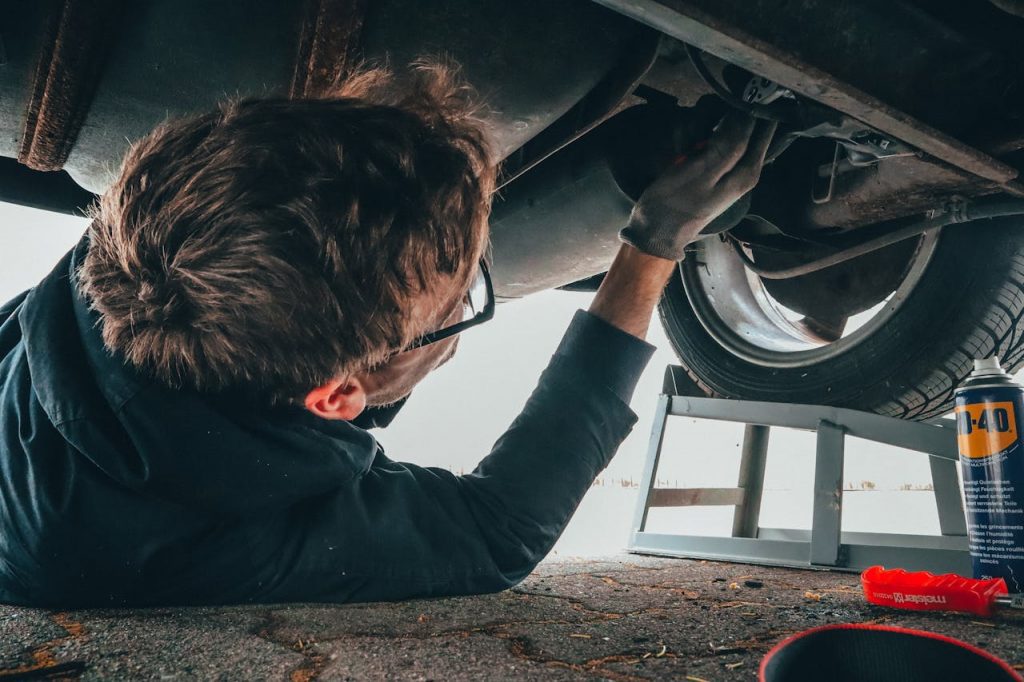Busy professionals–across all fields–often find themselves juggling numerous responsibilities and commitments. Amidst the hustle and bustle of work, meetings, and personal obligations, regular vehicle maintenance can easily fall by the wayside. However, neglecting your vehicle’s upkeep can lead to costly repairs, decreased performance, and even safety hazards. This article explores the importance of regular vehicle maintenance for busy professionals and provides practical tips to integrate these essential tasks into a hectic schedule.

Understanding the Benefits of Regular Vehicle Maintenance
Maintaining your vehicle is not just about ensuring it runs smoothly; it also plays a crucial role in safety, efficiency, and cost savings. Here are some key benefits of regular vehicle maintenance:
- Enhanced Safety: Regular maintenance ensures that your vehicle is safe to drive. Critical components like brakes, tires, and lights need to be in optimal condition to prevent accidents.
- Improved Performance: A well-maintained vehicle performs better, providing a smoother and more enjoyable driving experience. Regular oil changes, tune-ups, and tire rotations contribute to better engine performance and fuel efficiency.
- Cost Savings: Preventive maintenance helps identify potential issues before they become major problems, saving you money on expensive repairs in the long run.
- Increased Resale Value: A vehicle with a consistent maintenance history retains its value better than one with a spotty service record. This can be beneficial if you decide to sell or trade-in your car.
Essential Maintenance Tasks for Busy Professionals
To keep your vehicle in top shape, focus on these essential maintenance tasks:
- Oil Changes: Regular oil changes are vital for engine health. Old, dirty oil can cause engine wear and reduce performance. Aim to change your oil every 3,000 to 5,000 miles, depending on your vehicle’s specifications and driving conditions.
- Brake Inspections: Brake components need to be in proper working condition, as they are crucial to your and others’ safety. Regularly check your brake pads, rotors, and fluid levels. If you notice any squeaking, grinding, or reduced braking performance, have them inspected immediately.
- Tire Maintenance: Properly inflated and rotated tires ensure better handling, fuel efficiency, and safety. Check tire pressure monthly and rotate your tires every 5,000 to 7,000 miles. Also, inspect the tread for signs of wear and replace tires as needed.
- Fluid Checks: Beyond oil, your vehicle relies on various fluids to operate smoothly, including coolant, transmission fluid, brake fluid, and power steering fluid. Regularly check these fluid levels and top them off as necessary.
- Battery Care: A dead battery can leave you stranded at the most inconvenient times. Inspect your battery terminals for corrosion and ensure it’s securely mounted. If your battery is more than three years old, consider having it tested.
- Lights and Wipers: Visibility is crucial for safe driving. Regularly check your headlights, brake lights, turn signals, and windshield wipers to ensure they are functioning correctly. Replace wiper blades every six months and bulbs as needed.
Practical Tips for Incorporating Maintenance into a Busy Schedule
For busy professionals, finding time for vehicle maintenance can be challenging. Here are some practical tips to help you stay on top of these essential tasks:
- Schedule Regular Appointments: Just as you would schedule a doctor’s appointment or business meeting, set reminders for vehicle maintenance. Most service centers offer online booking, making it easy to schedule appointments during your free time.
- Use Mobile Mechanic Services: Mobile mechanics can come to your home or workplace to perform routine maintenance, saving you the time and hassle of going to a service center.
- Combine Errands: Plan your maintenance tasks alongside other errands. For instance, schedule an oil change while you shop for groceries or run other errands nearby.
- Learn Basic DIY Maintenance: Familiarize yourself with simple maintenance tasks you can do at home, such as checking fluid levels, tire pressure, and changing wiper blades. This can save you time and money.
- Utilize Waiting Time: Bring work with you to the service center. Use the waiting time to catch up on emails, read reports, or make phone calls. Many service centers offer free Wi-Fi, making it easy to stay productive.
- Stay Organized: Keep a maintenance log to track services performed and upcoming tasks. This can be a physical notebook or a digital app that sends reminders when maintenance is due.
Prioritizing Vehicle Maintenance for a Safer, More Efficient Professional Life
For busy professionals, regular vehicle maintenance is a vital aspect of ensuring safety, efficiency, and long-term cost savings. By understanding the importance of maintenance and incorporating practical strategies into your schedule, you can keep your vehicle in optimal condition without sacrificing your professional and personal commitments. Remember, taking care of your vehicle is an investment in your safety and peace of mind on the road.
